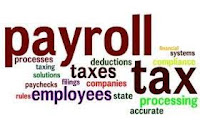On February 20, 2023, we posted SCOTUS Ruled That Non-willful Failure To File A FBAR Report Warrants a $10,000 Penalty Per Form Not Per Account!, where we discussed that the U.S. Supreme Court ruled on February 28, 2023, in Alexandru Bittner v. U.S., case number 21-1195, that the Bank Secrecy Act's $10,000 maximum penalty for the nonwillful failure to report foreign bank accounts applies on a per-form basis and not per account.
Now According to Law360, in U.S. v. Katholos, case number 1:17-cv-00531, in the U.S. District Court for the Western District of New York, a woman given a $4.5 million penalty for willfully failing to report a foreign bank account told a New York federal court that a recent ruling by the U.S. Supreme Court should reduce that amount.
In Bittner v. U.S., the court found the $10,000 maximum penalty for nonwillful failure to report foreign bank accounts applies annually and not per account, should apply to Marika Katholos, according to her attorneys. The decision should mean Katholos' penalty is capped at $100,000 instead of 50% of the balance in the account, the lawyers told the U.S. District Court for the Western District of New York.
The U.S. Department of Justice, however, said that Bittner is irrelevant to Katholos' case. Bittner applies to nonwillful violations, whereas the U.S. said Katholos deliberately failed to identify her accounts. The Bittner case also involved multiple bank accounts, whereas there is only a single account at issue in Katholos' case, the government added.
Katholos' attorneys argued the majority in Bittner noted that many tax professionals were unaware of the reporting requirement until the government began aggressive enforcement around 2008 or 2009. That may have included the tax professionals advising Katholos, who took their misguided advice. The attorneys sought permission for an expert witness to testify in a proceeding to reconsider whether she made an honest mistake.
The court requested letters March 1 from each party explaining how the Bittner decision could affect the case.
Contact the Tax Lawyers at
Read more at: Tax Times blog

















